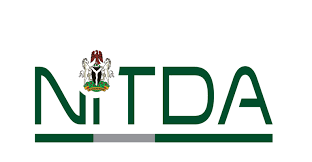The National Information Technology Development Agency (NITDA) has identified the Internet of Things (IoT) as a trillion-dollar economic opportunity capable of significantly boosting Africa’s Gross Domestic Product (GDP) and revolutionising key sectors such as agriculture, healthcare, and logistics.
Dr. Aristotle Onumo, Director of Stakeholder Management and Partnerships at NITDA, made this known on Tuesday while speaking at the IoT West Africa Data Centre and Cloud event in Lagos.
According to Onumo, “the immense potential of connected devices and systems can revolutionise various aspects of African life, seamlessly integrating technology into everyday activities.”
“Let’s envision a future where crops communicate their needs, traffic systems intelligently guide commuters, healthcare systems proactively predict disease outbreaks, and power grids autonomously manage themselves,” he said.
He noted that the global IoT market is projected to reach $1.6 trillion by the end of 2025, adding that the urgency for Africa to embrace this technological wave cannot be overstated.
With a population of 1.4 billion people—of which Nigeria accounts for approximately 40 per cent—Onumo stressed that the continent is at a critical juncture to harness its growing mobile penetration and digital appetite as a foundation for IoT-driven innovation.
He explained how sensors could optimise irrigation systems and track livestock in agriculture, while wearable devices and remote diagnostics could revolutionise healthcare delivery.
“Smart cities are already emerging across Africa, such as Kigali, Lagos, and Cape Town, utilising IoT for traffic management and waste control,” he noted.
Despite the promising outlook, Onumo pointed out several challenges facing IoT adoption in Africa. These include connectivity gaps, especially in rural areas, limited energy infrastructure to power connected devices, cybersecurity vulnerabilities, and issues surrounding data governance.
Another key concern, he added, is the skills gap.
“To address this, NITDA is focusing on digital literacy initiatives, aiming to achieve 70 per cent digital literacy by 2027 and 90 per cent by 2030 through programmes such as ‘Digital Literacy for All’ and pre-FTC training.
“The ‘Digital Literacy for All’ programme aims to train 30 million Nigerians in the informal sector by 2027. The pre-FTC programme will train 30 million Nigerians in high-demand digital skills by the same year,” he stated.
Onumo called for stronger collaboration among stakeholders, stressing that Africa must move beyond being mere consumers of IoT technologies to becoming creators and owners of them.
“Let us move forward towards a connected Africa, not at the edge of innovation, but at the centre of it,” he urged.
He further highlighted the need for investment in IoT infrastructure, curriculum development, seed funding for innovators, and support for startups to unlock the continent’s full potential in the digital age.
Also speaking at the event, Mr. Anoosh Sirkeck, Chief of Staff and Strategic Growth Leader at Vertex Next, echoed Onumo’s sentiments. He emphasised the importance of meaningful partnerships, critical infrastructure investment, and the empowerment of a new era of digital, inclusive, and sustainable growth.
The IoT West Africa event, organised by Vertex Next, brought together policymakers, industry experts, and innovators to discuss the future of IoT on the continent and explore strategies to harness its vast opportunities.


